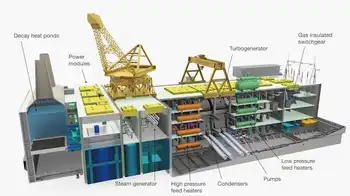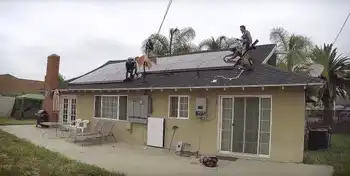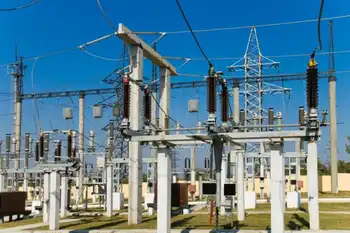Nuclear power has a bright future
By Times Republican
Protective Relay Training - Basic
Our customized live online or in‑person group training can be delivered to your staff at your location.

- Live Online
- 12 hours Instructor-led
- Group Training Available
After some operational issues that brought heightened scrutiny in the early 1980s, the Duane Arnold Energy Center north of Palo has received passing marks from the Nuclear Regulatory Commission in recent years.
It has been upgraded from its original output of 535 megawatts to 613 megawatts.
Now, federal regulators are trying to figure out if the plant will be good for another 20 years.
FPL Energy, which took over as the plant's majority owner in January 2006, filed an application on Sept. 30 to renew its operating license, slated to expire in 2014, until 2034. The application began a license renewal process that is expected to take 22 months, require public input and cost its owners $20 million.
The intense scrutiny by the Nuclear Regulatory Commission, involving about 24,000 inspection hours by the agency, is intended to answer many questions. Perhaps the largest of them: "Can this plant go another 20 years safely?" The answer is an emphatic "yes" from Rich Anderson, site vice president of Duane Arnold Energy Center for FPL Energy. While the public's natural reaction might be that the plant has run down considerably over 33 years, Anderson says the plant has actually improved over the years through the installation of better equipment, improved industry practices and predictive maintenance plans that identify issues before they become problems.
"The plant's being maintained to a high state of performance," Anderson said.
The Nuclear Regulatory Commission has already approved about 49 nuclear plant license extensions, and has 17 pending, according to the Nuclear Energy Institute. Two of the extensions were approved at plants in Florida owned and operated by FPL Energy.
While protesters greeted the plant's opening in 1975 because of concerns about possible radioactive releases, objections to the plant's renewal likely will be few.
Out of the three environmental organizations that have been most active on Iowa energy issues in the past year, none has decided to object to the license extension application yet.
One reason: The front-burner issue in environmental protection is now global warming. Nuclear power plants don't emit greenhouse gases, and therefore don't contribute much to the problem.
"The facility is there. It's been functioning successfully, and it seems to be well-managed," said attorney Carrie LaSeur, executive director of Plains Justice, an Iowa based public interest law center based in Mount Vernon. The group probably won't fight the extension because its resources are heavily committed to fighting applications for coal-burning power plants that are heavy emitters of greenhouse gases.
LaSeur does have concerns about the extension. Perhaps the largest is that spent nuclear fuel rods keep piling up in what she grimly called a "nuclear waste dump." The U.S. Department of Energy has so far not been able to provide a promised permanent underground repository for spent nuclear fuel. If it eventually succeeds in opening the Yucca Mountain site in Nevada, nuclear industry officials say that site won't be able to hold all of the projected nuclear waste needs.
Beginning in 2003, the operators of Duane Arnold Energy Center began moving bundles of spent nuclear fuel rods in metal canisters from underwater storage on an upper floor of the nuclear power plant into specially designed thick concrete bunkers outside the building.
Local Sierra Club activists Wally Taylor and Pamela Mackey Taylor say the group is undecided, but they don't consider nuclear power the answer to the nation's clean energy challenges. They say nuclear power is a non-renewable fuel that will run out in about a century, and that it generates greenhouse gases in the mining, processing and transportation that true renewable energy sources such as solar and wind power do not.
The Iowa Environmental Council hasn't weighed in on the issue, said Nathaniel Baer, the group's energy program director.
Duane Arnold Energy Center was a vital power lifeline to the Cedar Rapids area during the June floods, which knocked out two coal-burning power plants in Cedar Rapids. It provides 10 percent of the power consumed in Iowa, enough to power about 480,000 homes, FPL officials say.











